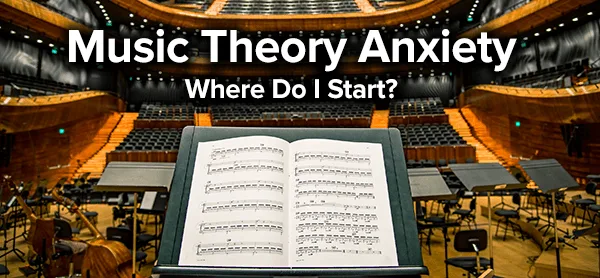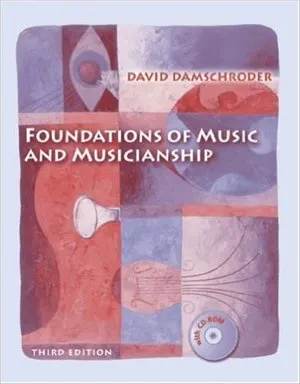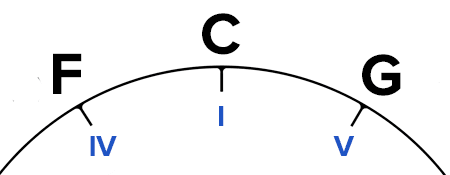We received a great question from a decent producer, who like many of us started out in rhythm based genres that don’t demand a ton of music theory knowledge. But he’s ready to expand his skill set… where should he start learning music theory?

In addition, we want to give mad props and say thanks to DonSuite, a composer who had this to say:
Yours are the first tutorials I could understand about reverb and delay. My scoring tracks now sound bigger and wider. I used to think reverb was flooding the sound and making it sound unnatural. You changed my mind. Thanks!
We’re happy to help and glad you and others are making progress in your songs using our tips and tricks. Let’s jump into today’s question:
Where Should I Start Learning Music Theory?
Question:
Hello, First of all your site is great it is just what I needed… I love it!
I’ve been struggling with music as a whole for years now, alot less now since I started, but still a whole lot. Let me give you a quick run down of my musical background:
I love music so much! It’s what I eat, breath, and think about 99% of the time throughout my day, so I try my best to become a great musician. I’ve been producing for 2-3 years, am comfortable with my DAW, and can make simple music quick. But that’s not really why I started making music.
I wanted to make great musical pieces. I’m mostly interested in Festival Trap and Future Bass but also pieces from Hans Zimmer; these genres and artists can make me wonder alot about the magic of music.
But from the point where I’m standing now, creating gorgeous musical pieces feels like black magic that only the die hard pros like Hans Zimmer, Flume, and Skrillex know the deep secrets of! (Yes, I know Festival and all that Trap ain’t that beautiful but it is to me!)
And it saddens and frustrates me so much because I love music and I won’t stop at nothing! But luckily I found one of your articles “Why Learn Music Theory,” and it gave me so much hope! You touched all my insecure points… my anxiety was answered!
It feels like I finally found the holy grail of music. I’m definitely going to buy that music theory book you recommended. But I still have one little fear… Is that book the only thing I need to create great, logical music pieces? Will it teach me the “why and how” of great music or is there something more that I need to know? Thank you for taking time to read my mail!
Your sincerely,
Cihan
Answer:
Cihan,
I love Trap and Dubsteb and all that! I’ve just recently been getting into the retro-futuristic synthwave stuff that’s emulating the sound of the 80’s. It’s all fantastic to me.
That book is one I personally recommended to be included in the article. If you don’t have much of a music theory background, it’s going to boost you to the next level of your production skills very quickly.

It starts at the beginning, introduces you to major keys, then minor keys. They help you to make sense of chords and chord inversions, and then proceed naturally to chord progressions. From there, you’ll understand how songs can almost write themselves.
The bassline becomes obvious based on chord inversions and then you can add extra grace notes to make it unique. The same goes for the lead melody. It’s framework pops right out of the top notes of the chords. And then you learn how to harmonize everything with your rhythmic instruments.
There’s also some advanced information that will separate you from amateurs. There are special rules in music theory for Western music that teach you to avoid hidden dissonances you’d may not have noticed until they’re pointed out, such as the duplication of certain notes in chords, etc.
You’ll learn how to work through the circle of fifths and so much more people ignore because it seems intimidating on the surface. Don’t let people scoff at these “complicated” concepts because they’re too lazy to learn them.

All in all, it’s solid. Not only do you get this information but they offer a CD to listen along (ear training is just as important as analytical work) and each lesson has worksheets you can make copies of for practice.
Can you find this same information in other books? Sure. Is it scattered about online for free? Yes. But having it all organized in one logically written book will save you time and clear up the confusion you get from jumping around a million sources online from topic to topic.
It was very worth my time. I went from making rudimentary rap beats to being able to write full orchestrations of classical music. They may not rival the greats, but they follow the same set of rules and sound like “real” pieces. This information carried right back into my beat production and pushed me into a separate league of quality compared to most other producers.
I hope this helps. This book will cover all of the fundamentals completely. Don’t have anxiety about there being more out there to learn. There’s always more! You have to start somewhere. This book is an accessible, high-quality place to start.
I also recommend learning how to start producing music on a computer. Using MIDI sequencing is the easiest way to start putting this music theory work into practice so you can actually hear what you’re doing and make changes on the fly. It’s much better than trying to listen to practice CD’s these books come with.
Best of luck,
Jared